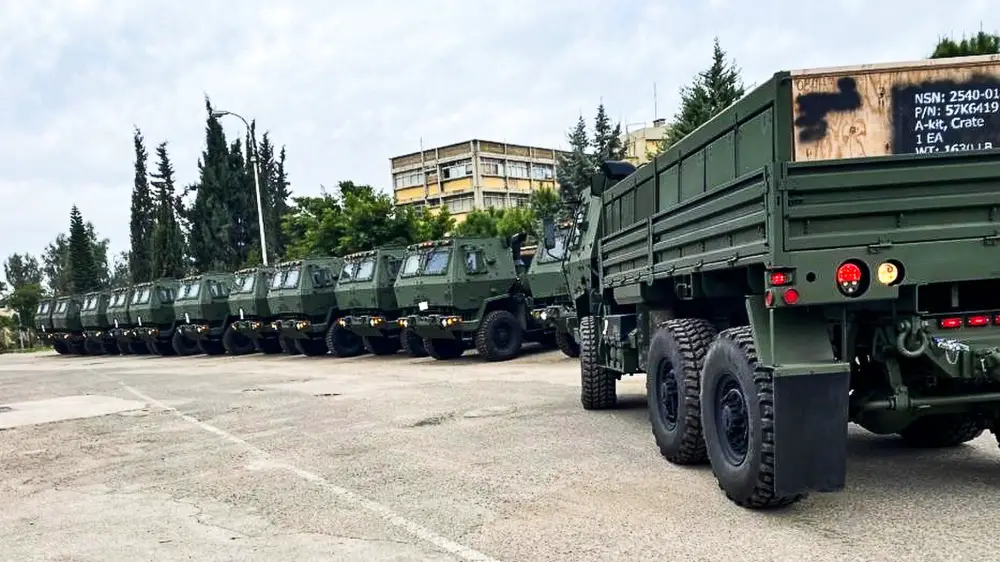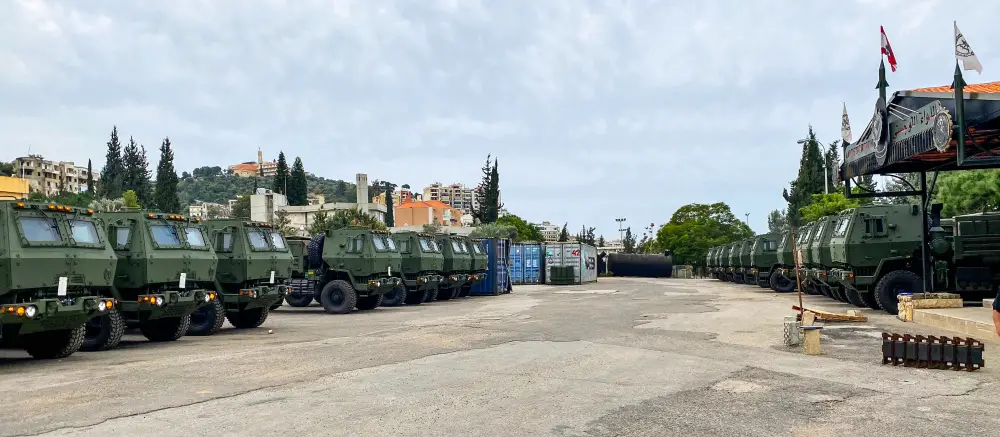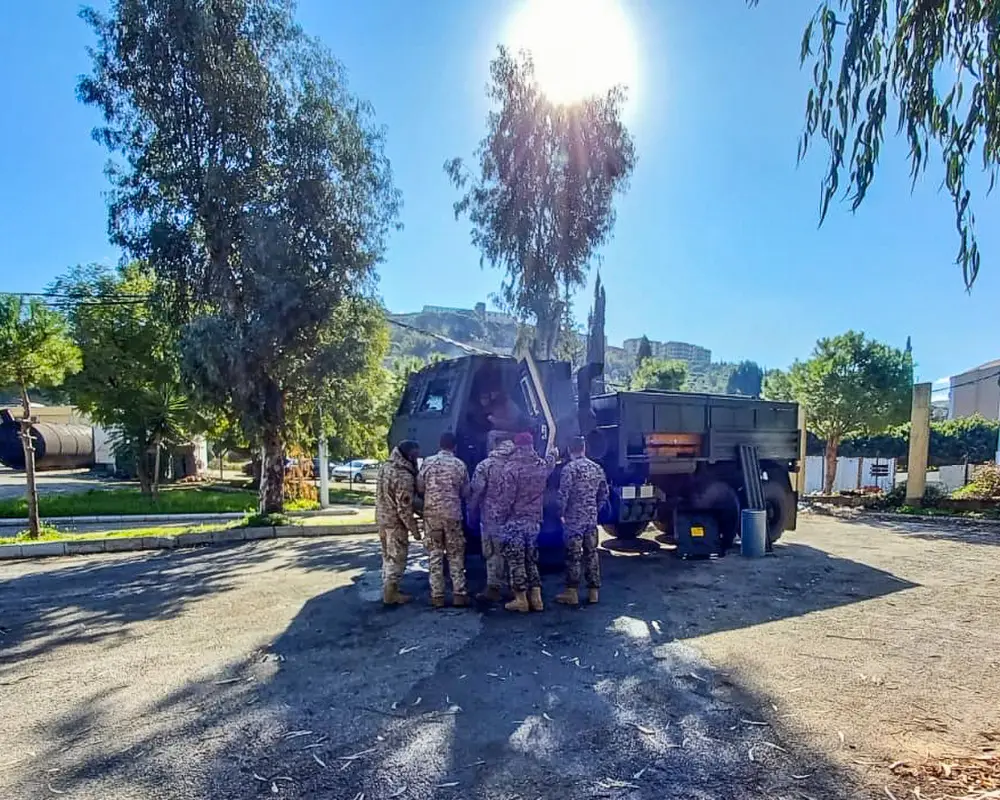In the aftermath of the catastrophic explosion at the port of Beirut in August 2020, members of the Army Security Assistance Enterprise team overcame significant pandemic-induced hurdles, along with quality control and transportation challenges, to deliver more than 30 military trucks to the Lebanese Armed Forces. These FMTV trucks were procured and delivered under Section 333: Authority to Build Capacity, in the FY2017 National Defense Authorization Act. As in any process with hundreds of touch points within the DOD, the defense industrial base, manufacturers, global logistics and transportation companies, country teams, port scheduling, and partner requirements, getting to a delivery can be a long and complicated process.
These trucks are part of the Army’s FMTV line of military vehicles designed with standardized parts between multiple bodies, helping to lower maintenance costs and simplify the training requirements. These trucks are also designed to support the installation of additional armor and glass, known as “B” kits, which are installed to protect the cabin and occupants. Lebanon will be able to use the multi-faceted trucks for military logistic support, humanitarian relief, and with an up-armored cabin, for troop transport and military operations. These are the first deliveries of 100 2½- and 5-ton FMTV (Family of Medium Tactical Vehicles) trucks delivered to Lebanon, just in time to meet the timeline for training, and in response to the Lebanese Armed Forces request following the port explosion.

This foreign military sales case was developed in August 2018, and awarded to the vehicle contractor in June 2019. By November 2020 the first 31 vehicles were built and loaded on ships. For TACOM the most challenging aspect of this case was the need to quickly develop a corrective action plan for the armor B-kits that were received defective from the manufacturer and ensure that the corrective action could be completed in time for the vehicles to be delivered to support a SATMO training program. It was that extra effort by the Central Command team at USASAC Redstone, country case managers and transportation experts at USASAC New Cumberland, TACOM SAMD program managers, the Army Contracting Command, and the Program Executive Office Combat Support and Combat Services Support team, which allowed these trucks to even be delivered.
The vehicles and armor B-kits were procured under two separate contracts from two different manufacturers. The initial armor kits arrived to Oshkosh with glass defects that would have been unacceptable to the customer. In order to meet the customer’s schedule, Multi-Mission Protected Vehicles Systems office developed a plan to bring in replacement transparent armor glass from existing supplies. This involved quick coordination between USASAC, PEO CS&CSS, TACOM SAMD and ACC, to modify contracts, and get the needed supplies to Oshkosh Defense, while simultaneously working with the glass manufacturer to correct the defect. Overcoming these challenges, the trucks were delivered almost three months early, arriving between December and early January, to the port of Beirut.

While delivery is a critical case milestone, under USASAC’s Total Package Approach, the post-delivery training, and follow-on sustainment support, are equally important considerations to ensure the customer can operate and sustain their equipment. They were immediately put to use as part of a training program administered by USASAC’s training element, the Security Assistance Training Management Organization, at Fort Bragg, North Carolina. That mobility is essential to support LAF, and the Lebanese government, which share almost 250 miles of border with war-torn Syria. The timely delivery of these trucks also epitomize the mission of USASAC and the ASAE: to build partner capacity and promote interoperability between U.S. and partner forces.
The Family of Medium Tactical Vehicles (FMTV) is a series of vehicles, based on a common chassis, that vary by payload and mission requirements. The FMTV is derived from the Austrian Steyr 12 M 18 truck, but substantially modified to meet U.S. Army requirements, these including a minimum 50 per cent U.S. content. There were originally 17 FMTV variants—four variants in the nominal 2.5 U.S. ton payload class, designated Light Medium Tactical Vehicle (LMTV), and 13 variants with a nominal 5 U.S. ton payload rating, called Medium Tactical Vehicle (MTV). It is currently manufactured by Oshkosh Corporation. On 13 October 2016 the U.S. Army solicited proposals for the FMTV A2 rebuy competition. On 7 February 2018 the U.S. Army announced the FMTV A2 contract had been awarded to Oshkosh Defense.
(Source by U.S. Army Security Assistance Command/Richard Bumgardner)
